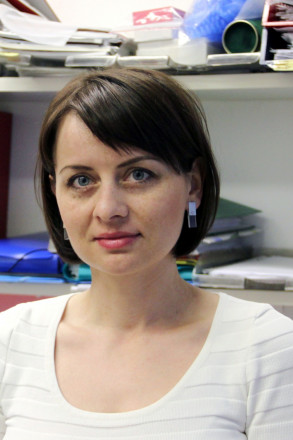M Zaliova, O Zimmermannova, P Dörge, C Eckert, A Möricke, M Zimmermann, J Stuchly, A Teigler-Schlegel, B Meissner, R Koehler, C R Bartram, L Karawajew, P Rhein, J Zuna, M Schrappe, G Cario and M Stanulla. Leukemia (2014) 28, 182–185; doi:10.1038/leu.2013.282; published online 18 October 2013. IF: 10.16

Department of Paediatric Haematology and Oncology
Childhood acute lymphoblastic leukemia (ALL) demonstrates clinical and biological heterogeneity, which is largely sustained by a diverse genetic background. Today, the majority of children with ALL treated on modern treatment protocols can expect to achieve long-term cure, but still a significant proportion of patients suffer therapy-related toxicity and disease relapse. Thus, identification of new prognostic markers to improve initial risk assessment for subsequent treatment tailoring remains an important goal in ALL research.
Recent genomic profiling studies of childhood ALL identified several new recurrent structural genetic aberrations including monoallelic intragenic deletions of ERG (ERGdel)—a gene coding for an ETS family member transcription factor with important functions in hematopoiesis—in approximately 7% of childhood B-cell precursor (BCP) ALL. ERGdel was later associated with a specific gene expression profile including aberrant expression of CD2 and suggested to characterize a novel ALL subgroup with specific biology and clinical behavior. Of importance, in previous studies on high-risk BCP ALL, ERGdel-positive cases could be classified into a gene expression cluster with significantly better treatment outcome. The above findings suggest that ERGdel may be a clinically useful marker to further refine risk-adapted treatment stratification in childhood ALL.
In the present study, we analyzed the presence of ERGdel in a large cohort of children with ALL treated according to the Austrian-German-Swiss ALL-BFM-2000 protocol.
Overall, our present observations support a positive impact of ERGdel on treatment susceptibility in ALL-BFM 2000. However, although hampered by small numbers, our results at the same time suggest that ERGdel may only act as a valuable surrogate marker for a prognostically favorable biological ALL subgroup yet to be evaluated more precisely in the context of BFM treatment and promote further studies to better understand the underlying pathomechanisms.
http://www.nature.com/leu/journal/v28/n1/full/leu2013282a.html
